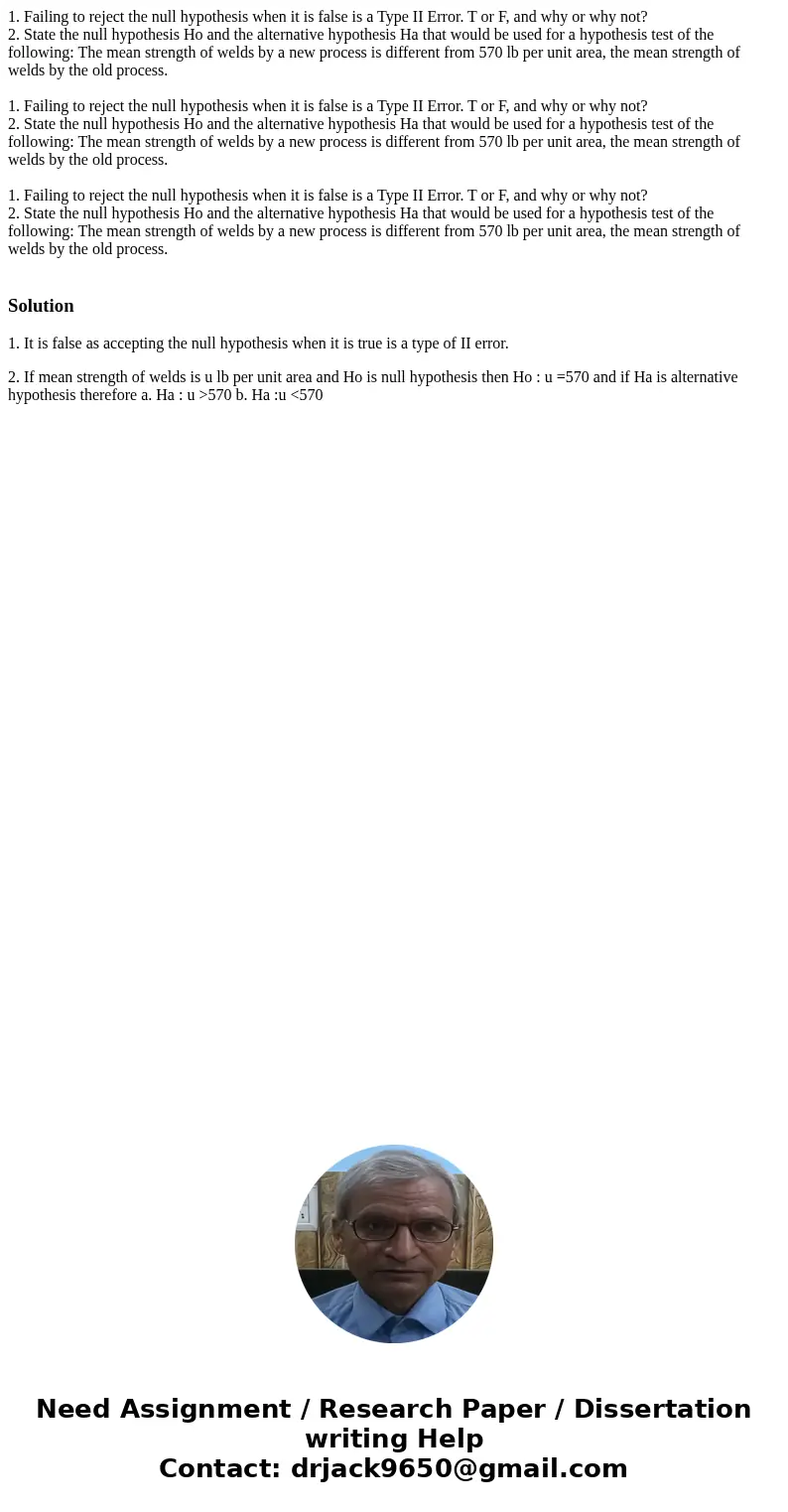1 Failing to reject the null hypothesis when it is false is
1. Failing to reject the null hypothesis when it is false is a Type II Error. T or F, and why or why not?
2. State the null hypothesis Ho and the alternative hypothesis Ha that would be used for a hypothesis test of the following: The mean strength of welds by a new process is different from 570 lb per unit area, the mean strength of welds by the old process.
1. Failing to reject the null hypothesis when it is false is a Type II Error. T or F, and why or why not?
2. State the null hypothesis Ho and the alternative hypothesis Ha that would be used for a hypothesis test of the following: The mean strength of welds by a new process is different from 570 lb per unit area, the mean strength of welds by the old process.
1. Failing to reject the null hypothesis when it is false is a Type II Error. T or F, and why or why not?
2. State the null hypothesis Ho and the alternative hypothesis Ha that would be used for a hypothesis test of the following: The mean strength of welds by a new process is different from 570 lb per unit area, the mean strength of welds by the old process.
Solution
1. It is false as accepting the null hypothesis when it is true is a type of II error.
2. If mean strength of welds is u lb per unit area and Ho is null hypothesis then Ho : u =570 and if Ha is alternative hypothesis therefore a. Ha : u >570 b. Ha :u <570

 Homework Sourse
Homework Sourse